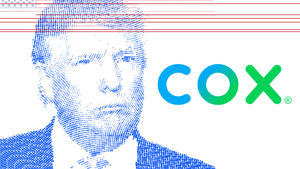Donald Trump’s Solicitor General is “ignoring the record” by sticking up for ISP Cox Communications in its legal battle with the major record companies. That legal battle, which involves a mega-damages award of $1 billion in favour of the majors, also spotlighted a senior Cox executive who once sent colleagues a Trumpian email saying “F the DCMA!!!” Hardly something the US government should be defending, the majors argue. But, equally, maybe something that appeals very much to Trump.
Cox is trying to get the US Supreme Court to overturn that billion dollar judgment that also holds it legally liable for music piracy committed by its customers. Trump’s legal man D John Sauer recently urged the Supreme Court to intervene, echoing the narrative pushed by Cox that lawsuits like this one mean ISPs will have to start cutting off millions of American internet users.
But that narrative is a load of nonsense, according to the majors. Responding to Sauer’s recent court filing that commented on this case, they say Cox wasn’t held liable for copyright infringement because its system for dealing with repeat infringers among its customer base was imperfect. They were held liable because its system for dealing with piracy on its networks was non-existent.
“Cox was held liable not because it failed to do enough to police infringement”, the majors write in their own submission to the Supreme Court, “but because it took no meaningful steps to stop infringement and continued serving specific, identifiable subscribers even after receiving explicit notice of their repeat (and often rampant) infringement”.
Cox did this, the majors argue, because the ISP said “F the DCMA!!!” That being how one Cox executive referred, in internal communications, to the US Digital Millennium Copyright Act which sets out the obligations of internet companies that want to avoid liability for their customers’ infringement.
And the Supreme Court doesn’t have to trust that the majors are right about all this. Because “there was a trial” where this was all set out in clear terms, and “the extensive record thoroughly convinced a jury… that Cox not only contributed to subscriber infringement, but did so willfully”.
Cox was one of a number of American ISPs sued by the music industry for not doing enough to tackle music pirating customers despite being alerted to the piracy by the record companies.
BMG and later the majors successfully convinced the court that Cox’s deliberately shoddy systems for dealing with repeat infringers meant it did not qualify for protection under the DMCA safe harbour for internet companies. Which means it’s liable for contributory infringement, for contributing to its customers’ piracy.
The precedent set in the Cox cases led to the majors suing an assortment of ISPs, some of which lost in court, some of which settled. It also significantly boosted the music industry’s long-running battle against online piracy, putting pressure on ISPs to be more proactive in tackling pirating customers.
But Cox - and Grande Communications, another ISP that was also successfully sued - now want the Supreme Court to reverse that precedent, arguing that the lower courts got it wrong, and that the Cox and Grande judgements could jeopardise the internet connections of millions of Americans. Sauer expressing similar concerns and urging the Supreme Court to intervene was a considerable boost for the ISPs.
However, the majors say in their filing, the government’s recommendation is “bewildering”, because the liabilities of the ISPs have been established in multiple courts, and the DMCA provides a framework to allow internet companies to mitigate their liabilities, but Cox and Grande ignored that framework. There is no need, therefore, for the Supreme Court to meddle with the precedent that has been set.

